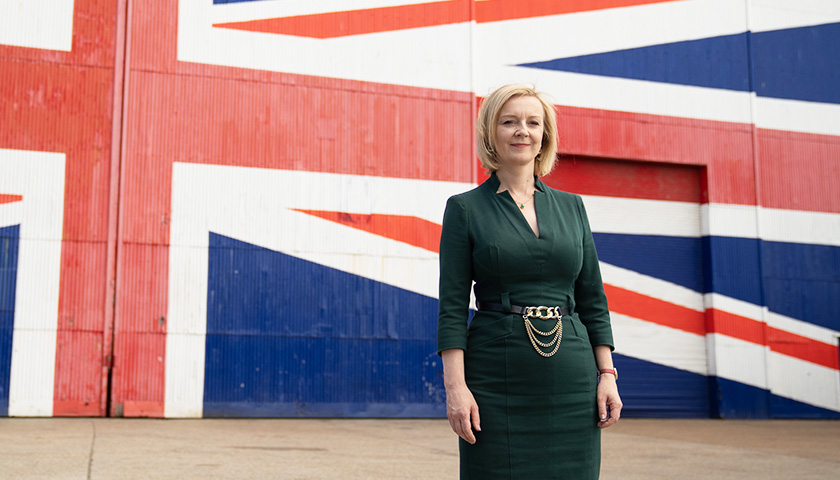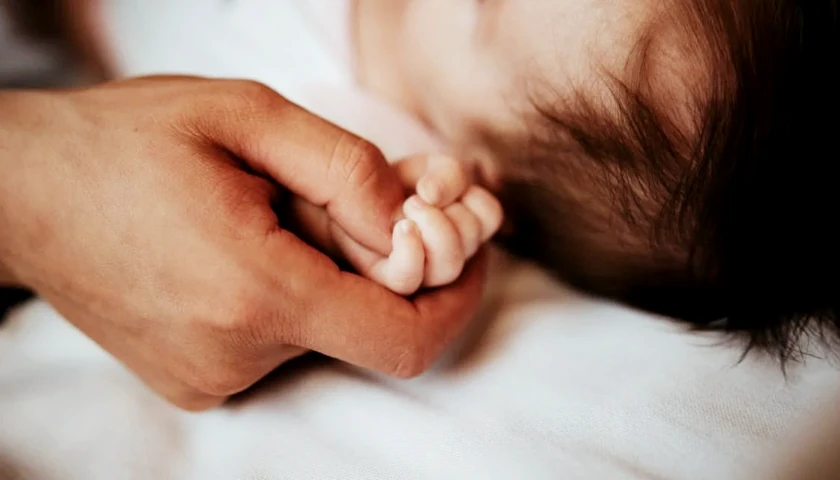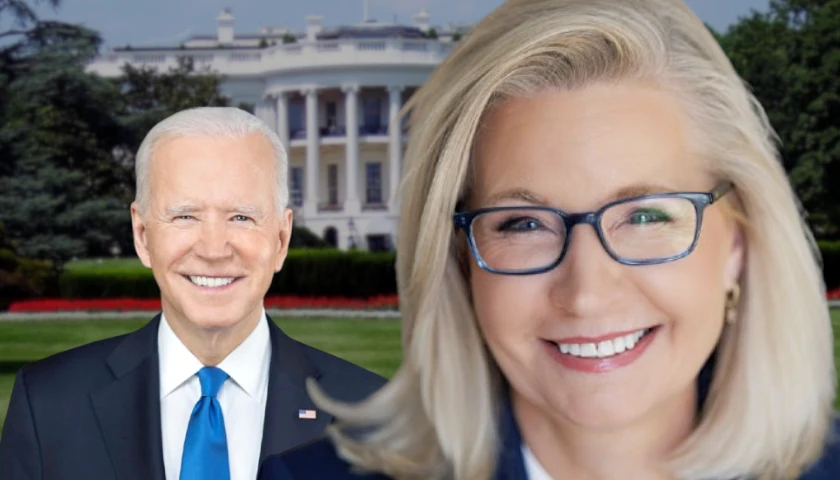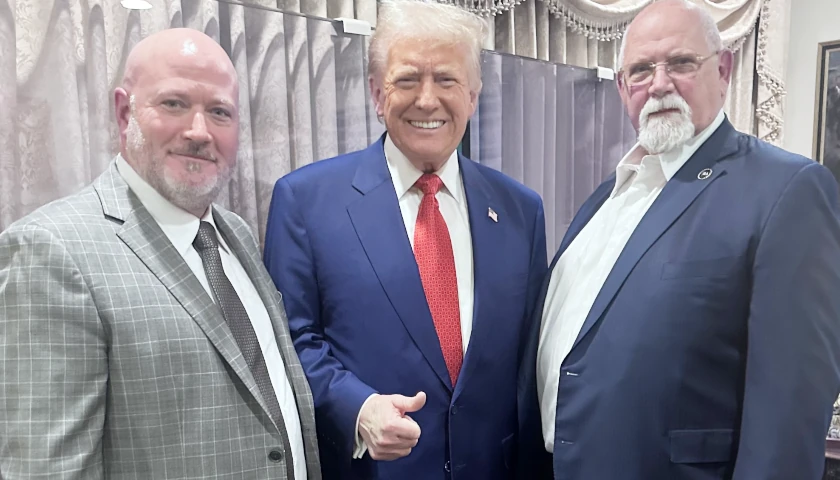by Micaela Burrow
Liz Truss, the United Kingdom’s foreign secretary, believes in limited government and low taxes in the vein of former leader Margaret Thatcher — and that’s why she’s set to be the U.K.’s next prime minister, Nile Gardiner, a researcher at the Heritage Foundation and former Thatcher aide, told the Daily Caller News Foundation.
A former Liberal Democrat who at one point called for the abolition of the royal family and opposed Brexit even after establishing herself as an exemplar of the conservative Tories, Truss has overtaken Britain’s top financial minister, Rishi Sunak, in the race to replace Prime Minister Boris Johnson. Her “Thatcherite” qualities, referring to the “Iron Lady” Margaret Thatcher who championed national strength and fiscal restraint, make her the candidate Britain sorely needs, Gardiner told the DCNF.
“She is a limited-government, low-tax politician who believes in reining in the role of the state. … She’s a principled Conservative leader,” said Gardiner.
 Like Thatcher, Truss will have to deal with rampant inflation and a shrinking economy as Britain feels the effects of a global energy shortage. Her Thatcherite solution involves making tax cuts and shrinking the state sector, CNN reported.
Like Thatcher, Truss will have to deal with rampant inflation and a shrinking economy as Britain feels the effects of a global energy shortage. Her Thatcherite solution involves making tax cuts and shrinking the state sector, CNN reported.
Truss has promised to take the “nuclear option,” slashing the value-added tax, a levy applied at different stages of consumption, by 5% rather than expanding direct payments to households as the Sunak campaign has promised, the BBC reported. Her main opponent called the welfare boost “incredibly regressive,” saying it would cost the government the equivalent of 34.5 billion U.S. dollars.
I have a bold vision for our country and economy.
I'm ready to deliver as Prime Minister from day one. pic.twitter.com/Tm8xd6Sj5v
— Liz Truss (@trussliz) August 5, 2022
Truss also hopes to push a bill through parliament that would ease customs restrictions on the U.K.’s Northern Ireland, legislation the EU claims violates the “Brexit” agreement signed when the U.K. left the EU, according to Reuters. As part of the agreement, Northern Ireland retained its open trade relationship with the EU, effectively creating a customs border between the province and the rest of the U.K.
A “remainer” during the 2016 EU referendum, Truss said she changed her mind after concerns about the economic impacts failed to materialize. “What we’ve seen since the Brexit vote is our economy has done well,” she told the BBC.
She also supports fracking, expanding London Heathrow airport and domestic farming, and maintains close ties with think tanks that embrace free trade, according to Politics.co.uk. As environment secretary, she cut subsidies on solar farms, and she has also served in several economics and trade roles.
Critics accuse Truss of being a political chameleon. Neil Fawcett, a Liberal Democrat councilor who worked with Truss in her days on the Left, told CNN that Truss then and now “plays to the gallery” to score political points but holds no firm beliefs.
Her allies call her principled, with a Conservative Member of Parliament saying she has always been “extremist in everything she does,” according to Politico.
Truss must choose between returning to her party’s small-government roots and public pressure to ratchet up public spending to see Britain’s citizens through an economic crisis, a senior minister within the opposition Labour Party told Politico. “Does she just keep borrowing? We all know there isn’t any money,” the member said.
Liz Truss has shown she’d rather protect the profits of oil and gas giants than freeze your energy bills.
She has no plan that will ease the burden of the cost of living crisis. pic.twitter.com/NAfM9wc9RR
— The Labour Party (@UKLabour) September 2, 2022
Another challenge will be getting along with Washington, which has spoken out against Brexit and Truss’ position on the Northern Ireland Protocol, Gardiner said. In March, U.S. House Speaker Nancy Pelosi said Truss’ intention to break the Protocol was “deeply concerning.”
“I took on responsibility for negotiating the Northern Ireland protocol … and I will be very clear with people like Nancy Pelosi exactly what I think about this and exactly what we need to do,” Truss said, according to the Financial Times.
“Biden needs to back off,” Gardiner said.
The special relationship between the U.S. and U.K. has become especially visible with the Ukraine war, as both sides have shared intelligence and cooperated on policy to bolster mutual interests, although as foreign secretary Truss has pushed for even stronger support for Ukraine, FT reported. Both countries also share very close trade and investment ties and concern about China’s rising malign influence across the globe, Gardiner explained to the DCNF.
“There’s no U.S. national interest in fighting the British government over policy positions. This is insane,” Gardiner said.
The U.K. scheduled an emergency election when Johnson announced on July 7 he would step down following a string of ministerial scandals and resignations.
Voting ended on Sept. 2 for Tory members to cast their ballots for the next prime minister. While Sunak took an early lead on Truss and surprise favorite Penny Mordaunt, party members favored Truss over Sunak 59% to 32% by the time polls closed, with the remaining 10% saying they didn’t know who they’d vote for, Politico data showed.
Truss’ office did not respond to the DCNF’s request for comment.
– – –
Micaela Burrow is a reporter at Daily Caller News Foundation.
Photo “Liz Truss” by Liz for Leader.





